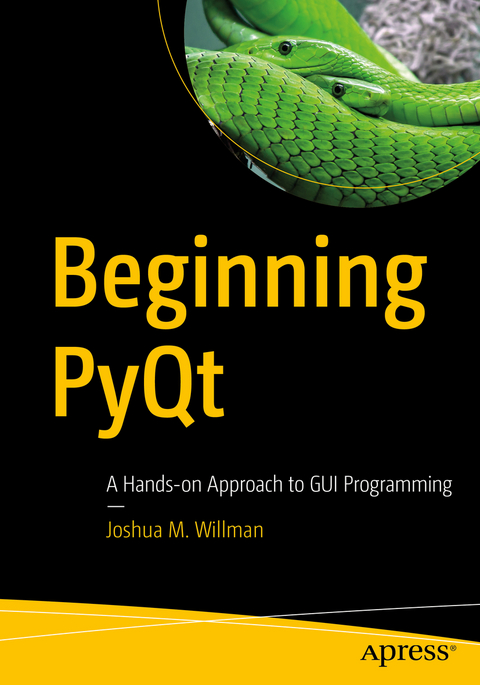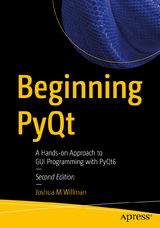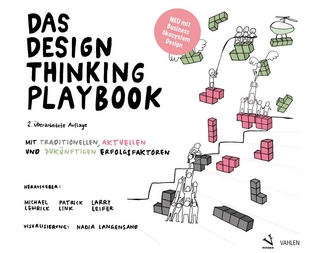
Beginning PyQt
Apress (Verlag)
978-1-4842-5856-9 (ISBN)
- Titel erscheint in neuer Auflage
- Artikel merken
You’ll start by reviewing the beginning steps of GUI development from, using different projects in every chapter to teach new widgets or concepts that will help you to build better UIs. As you follow along, you will construct more elaborate GUIs, covering topics that include storing data using the clipboard, graphics and animation, support for SQL databases, and multithreading applications. Using this knowledge, you’ll be able to build a photo editor, games, a text editor, a working web browser and an assortment of other GUIs.
Beginning PyQt will guide you through the process of creating UIs to help you bring your own ideas to life. Learn what is necessary to begin making your own applications and more with PyQt!
What You'll Learn
Create your own cross-platform GUIs with PyQt and Python
Use PyQt’s many widgets and apply them to building real applications
Build larger applications and break the steps into smaller parts for deeper understanding
Work with complex applications in PyQt, from animation to databases and more
Who This Book Is For
Individuals who already have a fundamental understanding of the Python programming language and are looking to either expand their skills in Python or have a project where they need to create a UI, but may have no prior experience or no idea how to begin.
Joshua Willman began using Python in 2015, when his first task was to build neural networks using machine learning libraries, including Keras and Tensorflow, for image classification. While creating large image data sets for his research, he needed to build a GUI that would simplify the workload and labeling process, which introduced him to PyQt. He currently works as a Python Developer and Instructor, designing courses to help others learn about coding in Python for game development, AI and machine learning, and programming using microcontollers. More recently, he set up the site Red Huli to explore his and others’ interests in using Python and programming for creative purposes.
Beginning PyQt
Chapter 1 - Charting the Course
Chapter 2 - Getting Started
Chapter 3 - Adding Functions Through Buttons
Chapter 4 - Learning about Layout
Chapter 5 - Menus, Toolbars,and More
Chapter 6 - Styling Your GUIs
Chapter 7 - Creating GUIs with Qt Designer
Chapter 8 - Working with the Clipboard
Chapter 9 - Graphics and Animation in PyQt
Chapter 10 - Intro to Handling Databases
Chapter 11 - Asynchronous Programming
Chapter 12 - Extra Projects
Appendix A - Reference Guide for PyQt
Appendix B - Python Refresher
| Erscheinungsdatum | 08.06.2020 |
|---|---|
| Zusatzinfo | 104 Illustrations, black and white; XIX, 440 p. 104 illus. |
| Verlagsort | Berkley |
| Sprache | englisch |
| Maße | 178 x 254 mm |
| Gewicht | 868 g |
| Themenwelt | Mathematik / Informatik ► Informatik ► Programmiersprachen / -werkzeuge |
| Informatik ► Software Entwicklung ► User Interfaces (HCI) | |
| Informatik ► Theorie / Studium ► Compilerbau | |
| Schlagworte | Animation • Clipboard • Database • graphics • OpenSource • PyQt • Python • Qt • qtdesigner • UI |
| ISBN-10 | 1-4842-5856-8 / 1484258568 |
| ISBN-13 | 978-1-4842-5856-9 / 9781484258569 |
| Zustand | Neuware |
| Informationen gemäß Produktsicherheitsverordnung (GPSR) | |
| Haben Sie eine Frage zum Produkt? |
aus dem Bereich



